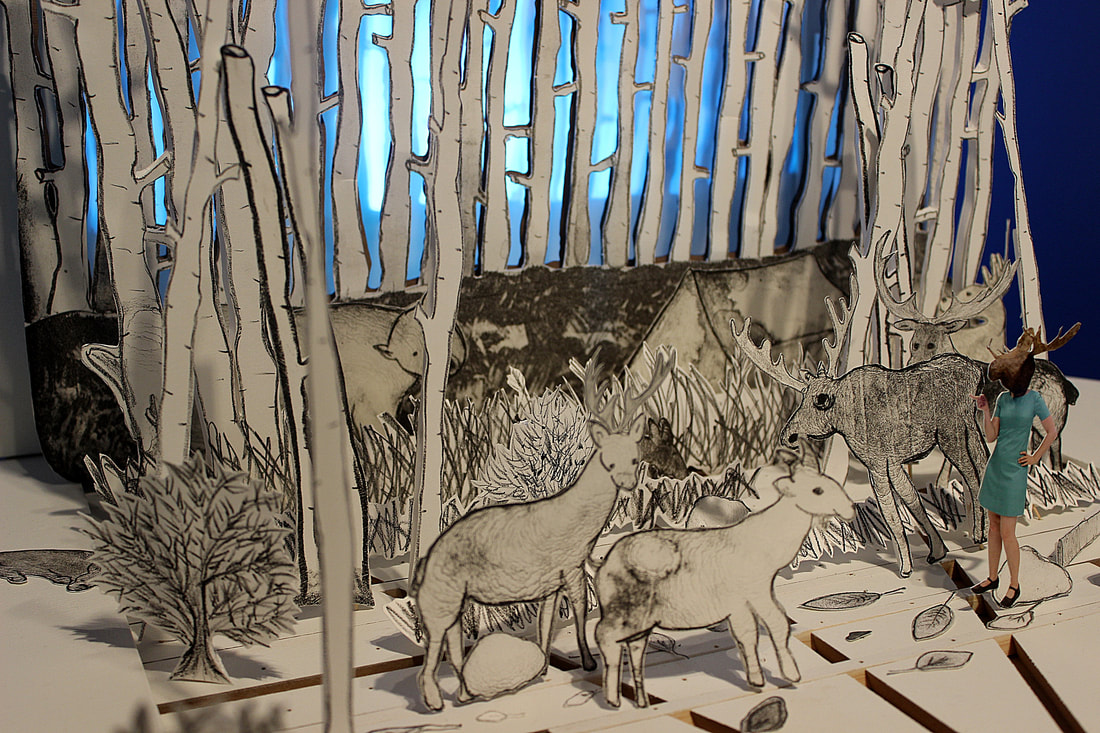Words make worlds. Not just words. That is, not words as such. Story. Story makes worlds. Narrative. The world expressed is the world lived. The words disappear and the dream surfaces. Like seduction. Like magic.
Writing is drawing is painting is filming is setting the stage for dreaming. Narrative. It’s not a matter of plot, it’s the ingredients, the recipe, of a magic potion, a spell. A charm. To work, it requires a good magician, who knows how to perform the incantation properly, to set the environment correctly. Magic is seduction, and seduction needs a willing partner. The magic fails if the person doesn’t receive it, doesn’t accept it’s trueness, doesn’t fall into the dream.
Like Bloom’s son.
What is the one true thing? The story of the story, like as if it is not true. Like as if truth and facticity, as if what is true and what is real in the pedestrian sense, is the same. As though prose were more true than poetry.
So, it’s not about narrative in the prosaic sense; it’s about narrative in the poetic sense.
Narrative is telling a story. Any story is telling. Any story telling is telling. What is said and the saying.
The novel, and now-a-days the independent TV series, are the long forms of story-telling. The prose of the world. They can be, and are at their best, of course, poetic. But it is film that is the poetic medium. Precisely because what is true in poetry is not stated but expressed.
It is not about the script as such. Nor any of its other constituent elements. It is an assemblage. But more accurately, it is a spell.
I saw a review referring to Big Fish’s “greatest strength,” as its script, but to isolate one of its constituent elements, like it’s script, or the photography, the direction, the acting, or the music (Danny Elfman was nominated for an Oscar for his score), is to miss it’s truly greatest strength, which is its charm - it’s magic power - to make evident the poetic truth, through its narrative, which is to say, through its capacity to bring us willingly into the dream.
The story makes the world, is the story-teller, is the world. The world is the worlds. The environment. The spell. The dream.
It’s not just a question of exaggeration. Of embellishment. It’s about the feeling, the heart of the matter. The poetry.
Kerouac said “life has no plot” in reference to his approach to writing from his life, which was not so much about describing actual people and events, but rather to express the inside of his experience, the poetic reality.
There is memory and there is dreaming. There are magic spells. There is the making and the story of the making is making once again - making it all over again. What is telling and is told and telling in the tale is the trueness of it, which is the poetry of it.
Gertrude Stein said poetry is about nouns and prose is about verbs. The naming. The what. The is-ness. Poetry is the natural expressive form of philosophy. Memory is a philosophical poet. Which is film. Or can be. Big Fish is, certainly.
All films are like an inception project. An attempt to plant an idea into our subconscious through a dream - which is the film itself.
Films are our dreams teaching us. These are some of the ones that have shown us the way:
Citizen Kane (1941), Orson Welles
Rashôman (1950), Akira Kurosawa
Vertigo (1958), Alfred Hitchcock
Wild Strawberries (1958), Ingmar Bergman
8 1/2 (1963), Federico Fellini
Solaris (1972), Andrei Tarkovsky
Stardust Memories (1980), Woody Allen
The Neverending Story (1984), Wolfgang Petersen
The Purple Rose of Cairo (1985), Woody Allen
The Thin Blue Line (1988), Errol Morris
Memento (2000), Christopher Nolan
Eternal Sunshine of the Spotless Mind (2004), Michel Gondry
Inception (2010) Christopher Nolan
And of course Big Fish, (2003), Tim Burton
Michael Boyce is a writer and editor specializing in digital communications. He is the author of 2 published novels (Pedlar Press), and his short stories and critical pieces have been featured in a number of magazines and journals. You can read his experimental poetry and philosophy with his photography on Medium at: https://medium.com/@mjbwriting

 RSS Feed
RSS Feed

